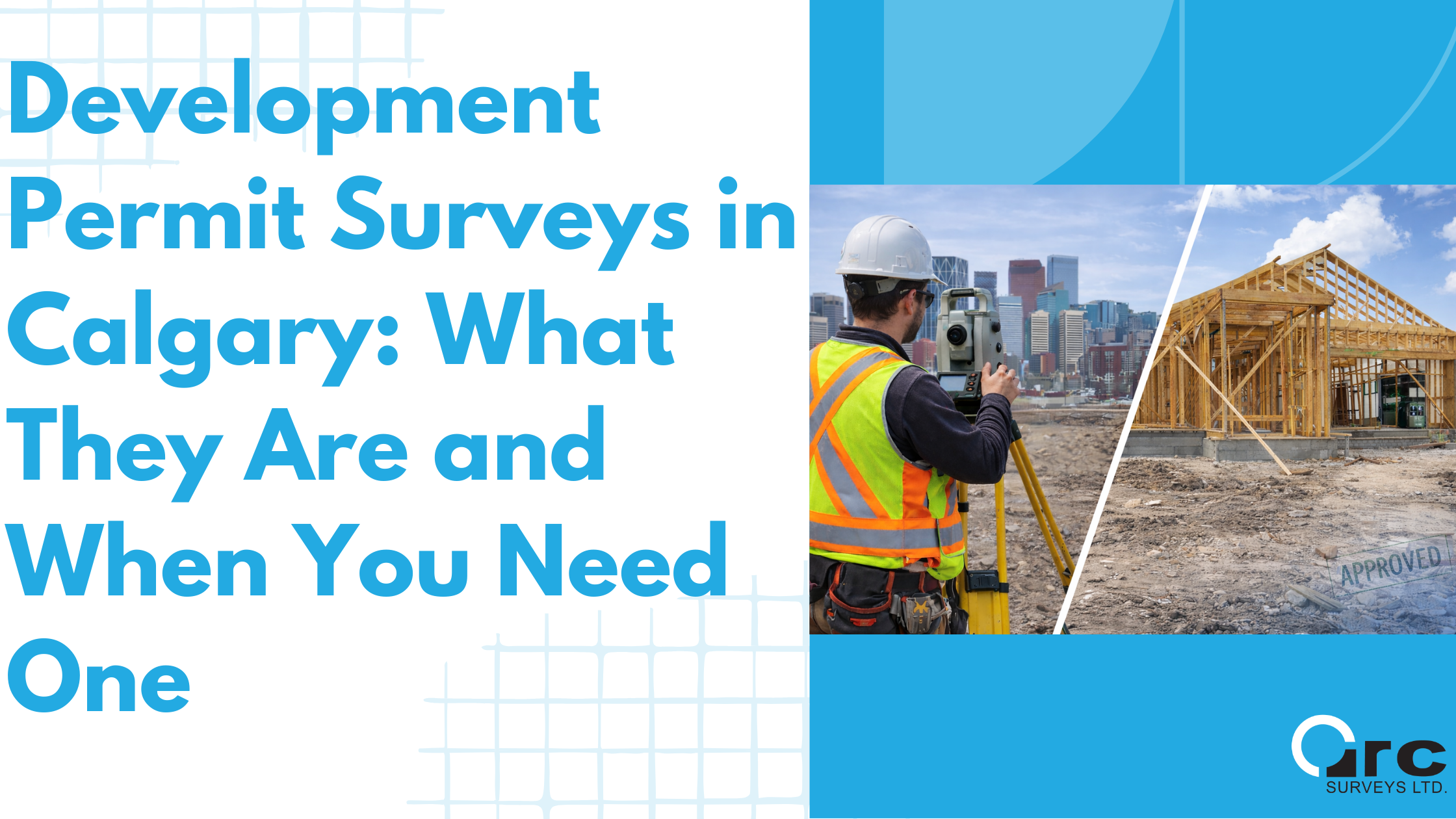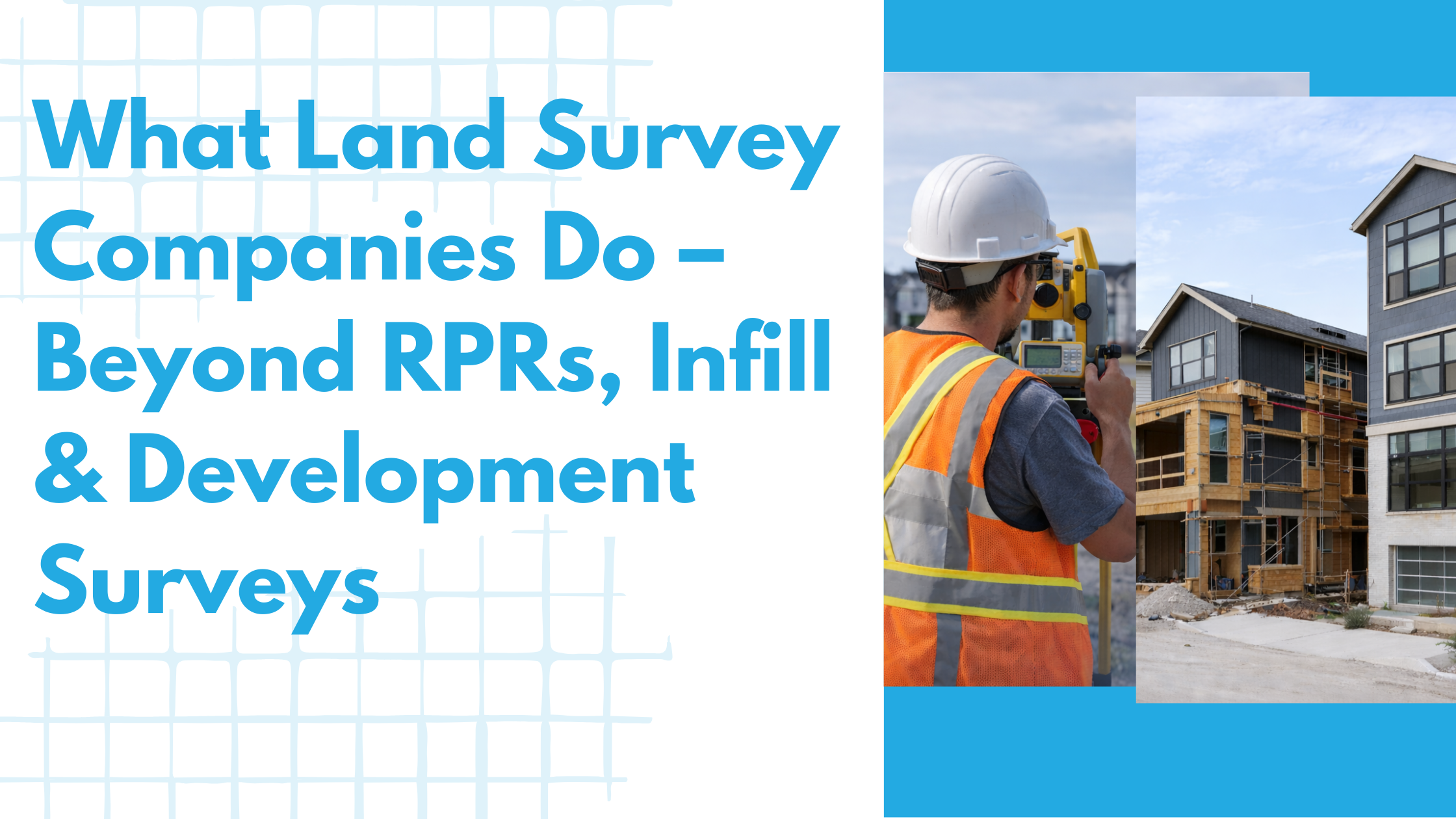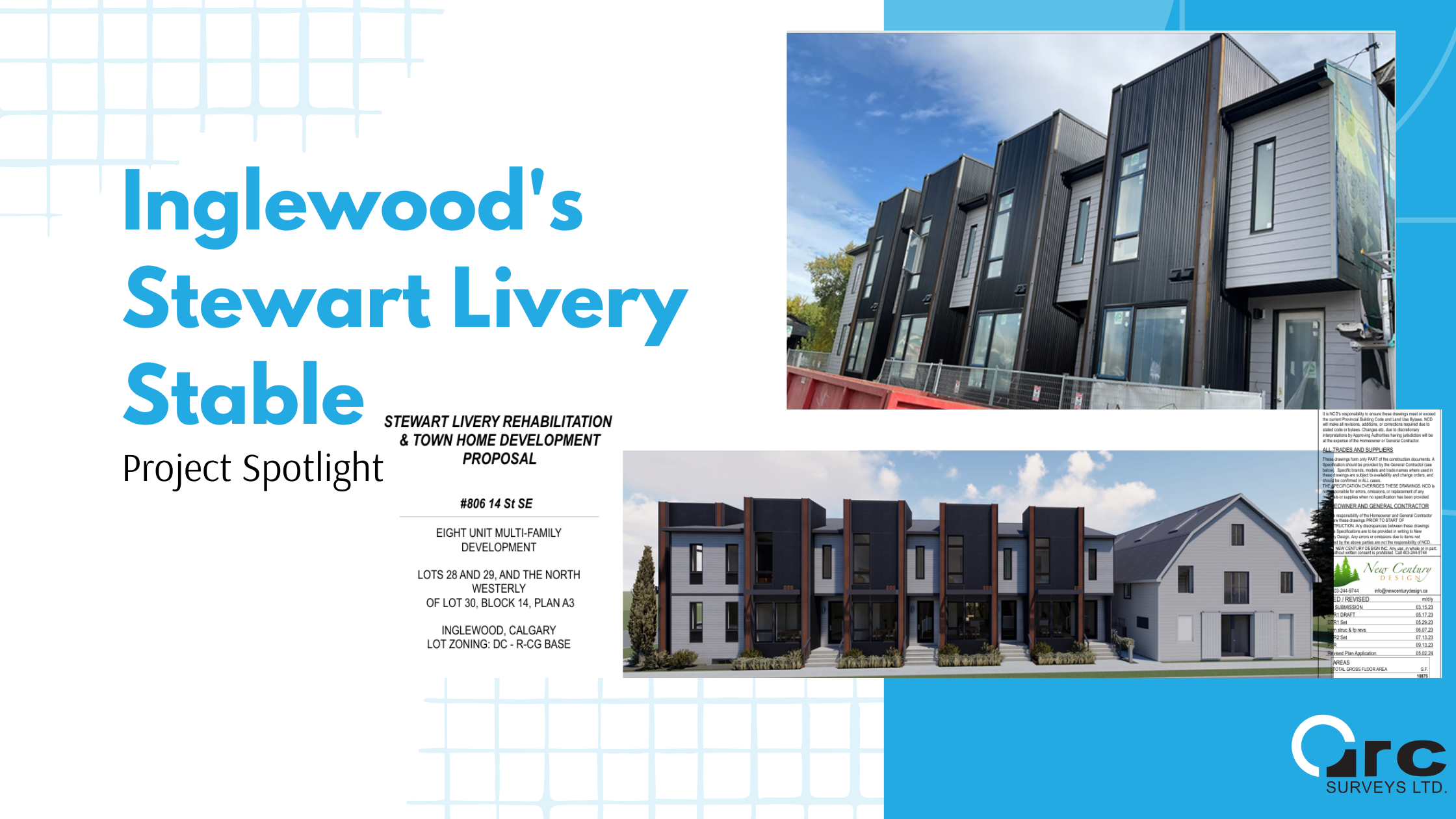How to Tell if You Need a Real Property Report (RPR) Before Selling Your Home in Alberta
If you’re thinking about selling your home in Alberta, you’ve likely heard the term Real Property Report (RPR). But do you really need one? And if you already have one, how do you know if it’s still valid?
Here’s what every homeowner should know before putting their house on the market.
What is a Real Property Report?
An RPR is a legal document prepared by an Alberta Land Surveyor. It shows:
- The legal boundaries of your property as marked by the original pins.
- All dimensions, setbacks, and permanent structures like your home, garage, deck, and shed
- Easements, rights-of-way, and encroachments.
This document ensures that what’s built on your land matches what’s allowed within municipal bylaws. Without it, there’s no official record confirming your property improvements meet local rules, and that can create problems when you try to sell.
Do You Need an RPR to Sell?
Yes, if you’re selling a home in Alberta, an updated RPR by an Alberta Land Surveyor with aMunicipal Compliance Stamp is typically required by the buyer, the buyer’s lawyer, or the lender. It proves that:
- Your property meets setback rules in compliance with Calgary bylaws
- There are no encroachments on neighbors’ or city land
- Structures were built legally and approved
Having an up-to-date RPR helps establish confidence in the transaction. If you can’t provide one, buyers might walk away or demand a reduction in price to cover their risk. Even if a buyer accepts title insurance as a substitute, most lawyers will still ask for an RPR to confirm what’s physically on the land. In the saturated Calgary real estate marketing in 2025, having an RPR prepared ahead of the sale will help accelerate the process and give buyers confidence.
How to Know if Your RPR is Still Valid
Ask yourself:
- Have you added anything permanent? (Garage, fence, deck, shed?)
- Is your RPR more than a few years old?
- Does it have a City of Calgary (or local municipality) Compliance Stamp?
If anything has changed on your property, your RPR is no longer accurate — and an updated RPR will be needed. Even something as small as a shed can make the difference between a valid and outdated RPR.
A compliance stamp is typically only valid if the RPR reflects all current structures on the property. So if you added a fence or built a larger deck, that change could trigger the need for a new survey.
How Long Does It Take to Get an RPR?
The process typically takes 1–2 weeks but can vary depending on demand, weather conditions, and lot complexity. During peak seasons (like spring and summer), it’s a good idea to schedule a land surveyor early to avoid delays with your closing date.
The Bottom Line
A valid, up-to-date RPR can help you avoid legal delays or deal-breakers in your real estate deal. If you’re unsure whether your RPR is still valid, contact Arc Surveys we’ll review your existing report for free and let you know if it still works or if you need a new one. Taking care of this early can help your sale go smoothly, protect you from liability, and build buyer trust.





